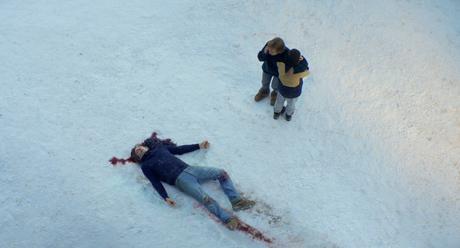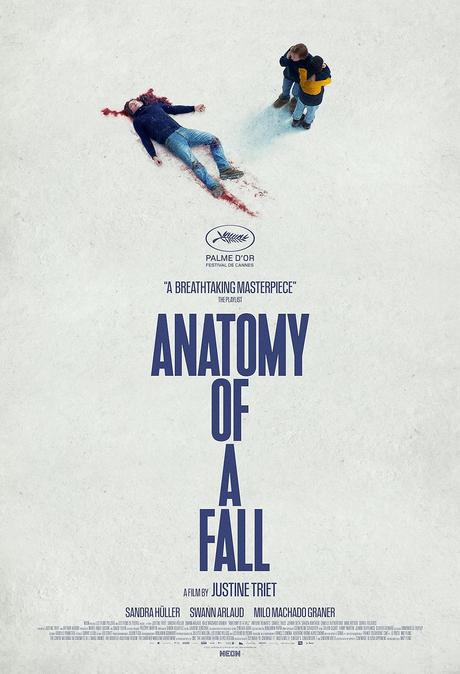

In the opening scenes of Justine Triet's engrossing Palme d'Or winner "Anatomy of a Fall", we meet the film's protagonist Sandra at her cozy mountain chalet. A successful writer, she is being interviewed by a young female student. As the pair being to establish a warm rapport, the interview is interrupted by loud music being played by her husband upstairs. Forcing them to reschedule, Sandra and her blind son Samuel return to their daily routine. But the peace is later disturbed once again when Daniel finds his father dead, right below the same attic from where the music played. Sandra claims the death to be accidental, but further investigations raise suspicions of foul play.
Before long, a full scale court case builds against Sandra, who enlists a lawyer friend to help with her defense. With the home now being considered a crime scene, every detail is analyzed, from the trajectory of the blood splatter to the house' acoustics. Daniel also becomes embroiled as a witness to not only the day's events but the history of his parents' relationship.
Indeed, "Anatomy of a Fall" gradually evolves into an interrogation of not only whether or not Sandra committed murder, but also of the couple's entire relationship. As the courtroom scenes dive into their past, the screenplay keeps adding layers which constantly shift our perspective on the incident and the possible motives. And throughout, it challenges the "truths" we interpret based on what we see, feel and hear. The latter is particularly intriguing through the exploration of taped recordings and Daniel's blind perspective.
As the drama unfolds, Triet's assured direction and thoughtful script never oversensationalize the proceedings. Likewise, Huller is equally judicious in her acting choices, putting on a veritable masterclass of conveying both internal and outwardly expressed turmoil. The experience of studying her face throughout this film is worth the price of admission alone.
Of course, courtroom dramas rely on equally captivating supporting players and "Anatomy of a Fall" certainly fits the bill with an incredible ensemble. Though his character dies early, flashbacks showcase Samuel Theis as an ideal match for Huller's acting prowess, conveying an authentic relationship dynamic in one particularly explosive argument scene. Similarly, Antoine Reinartz invigorates the courtroom scenes as the feisty prosecutor. But perhaps the most haunting performance comes from the diminiutive Milo Machado Graner, showing skill beyond his years by brilliantly expressing the ambiguity and doubt on which the film succeeds. Altogether, it's their performances that make this writerly film about writers soar and bring Triet's astute directorial vision to life.
